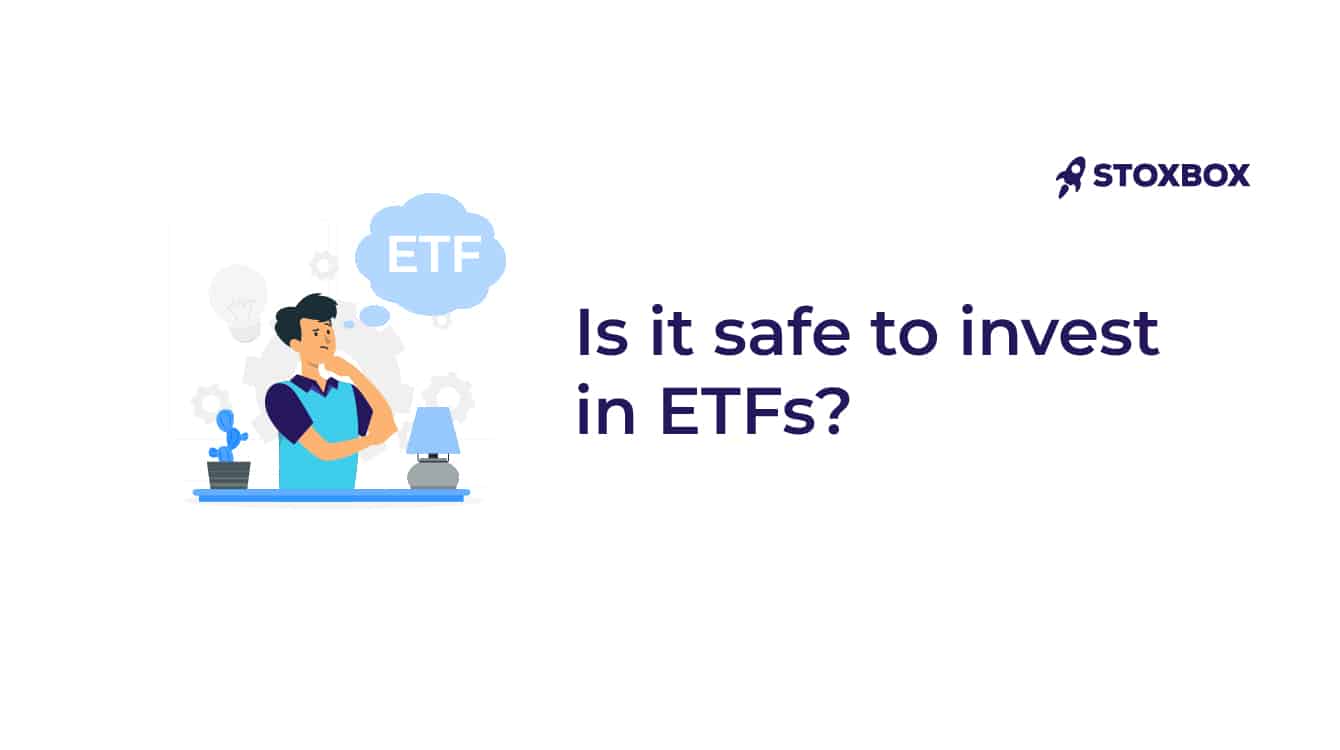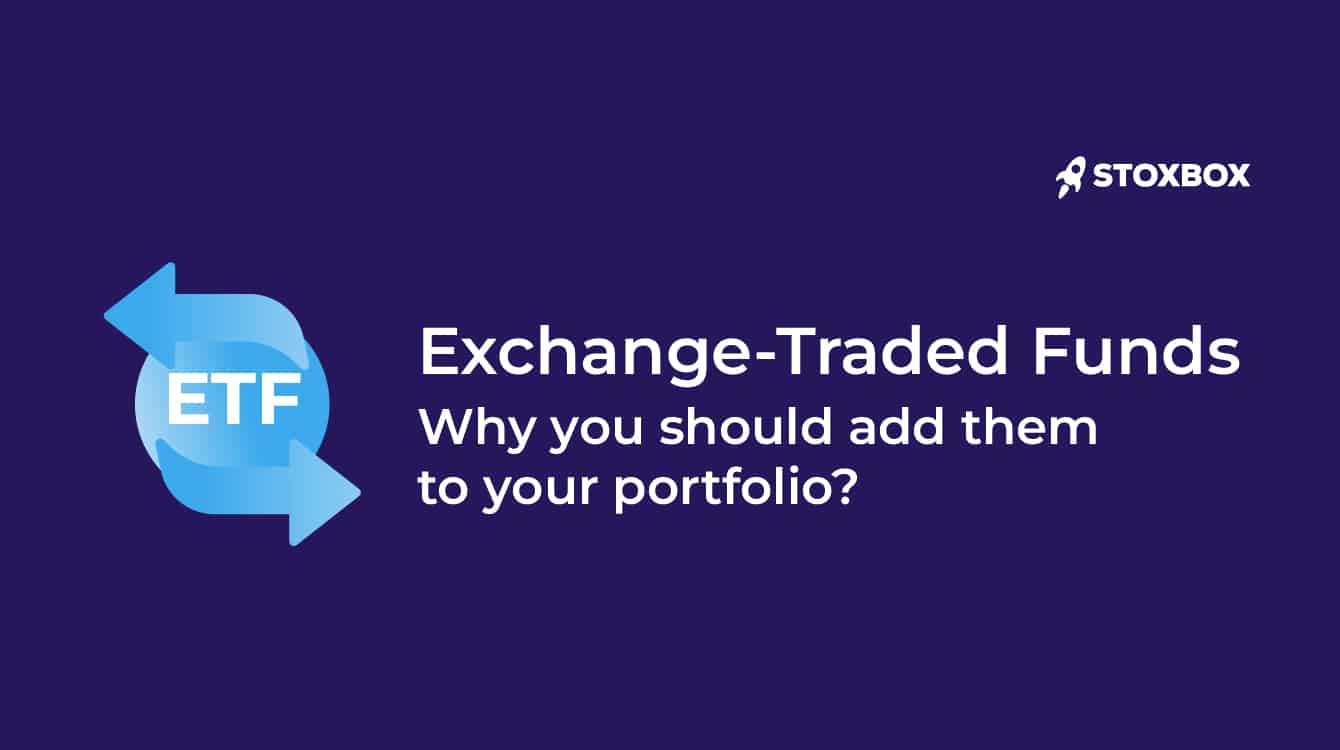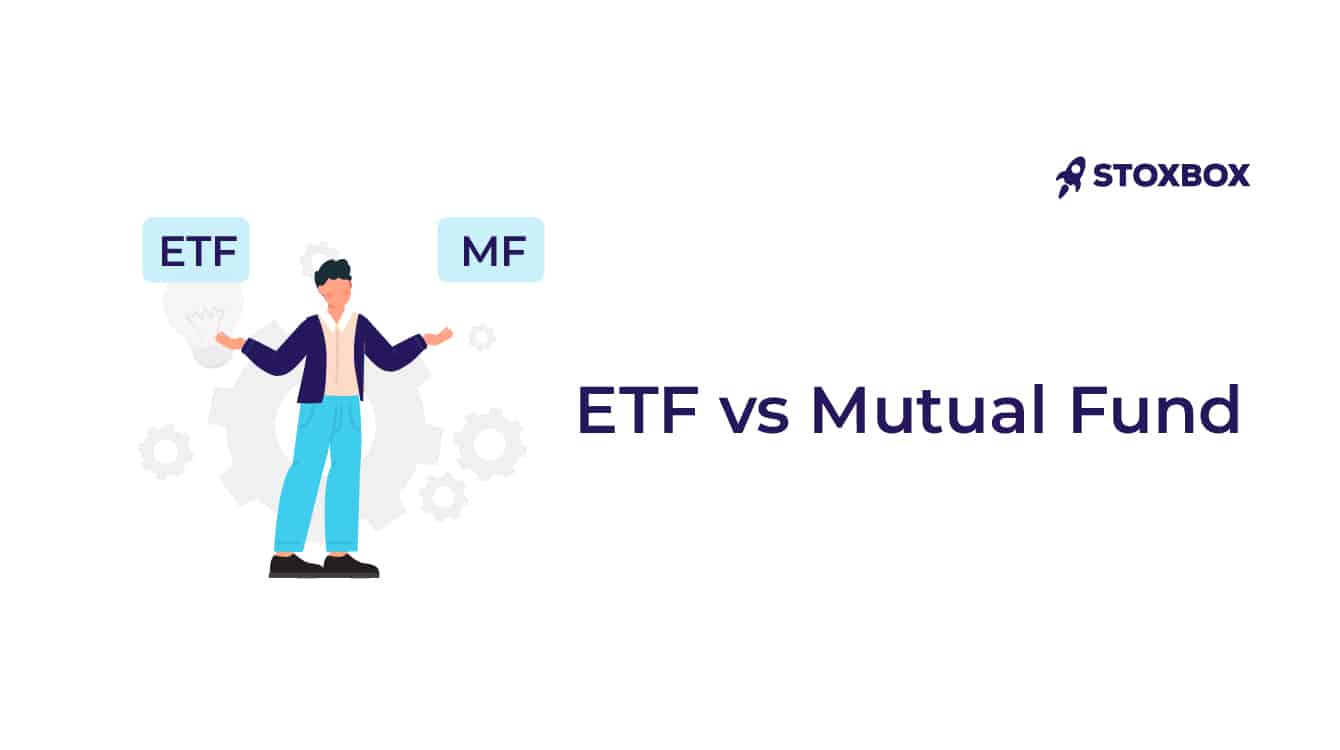When it comes to starting your investment journey, you are definitely spoilt for choice. In addition to having the option of investing in multiple asset classes and across themes and strategies, you also have options when it comes to choosing investment vehicles. For example, if you want equity exposure, you can choose to invest directly in the stock market, you can invest via equity mutual funds, you can invest in curated portfolios like an equity stoxbox, and you can invest via Exchange Traded Funds (ETFs). The vehicle that you choose could have an impact on your investment journey and even on your ability to achieve your financial goals. Globally, ETFs are considered a great way of investing in equity markets. However, let’s see if they are right for you.
First up, lets understand what ETF means?
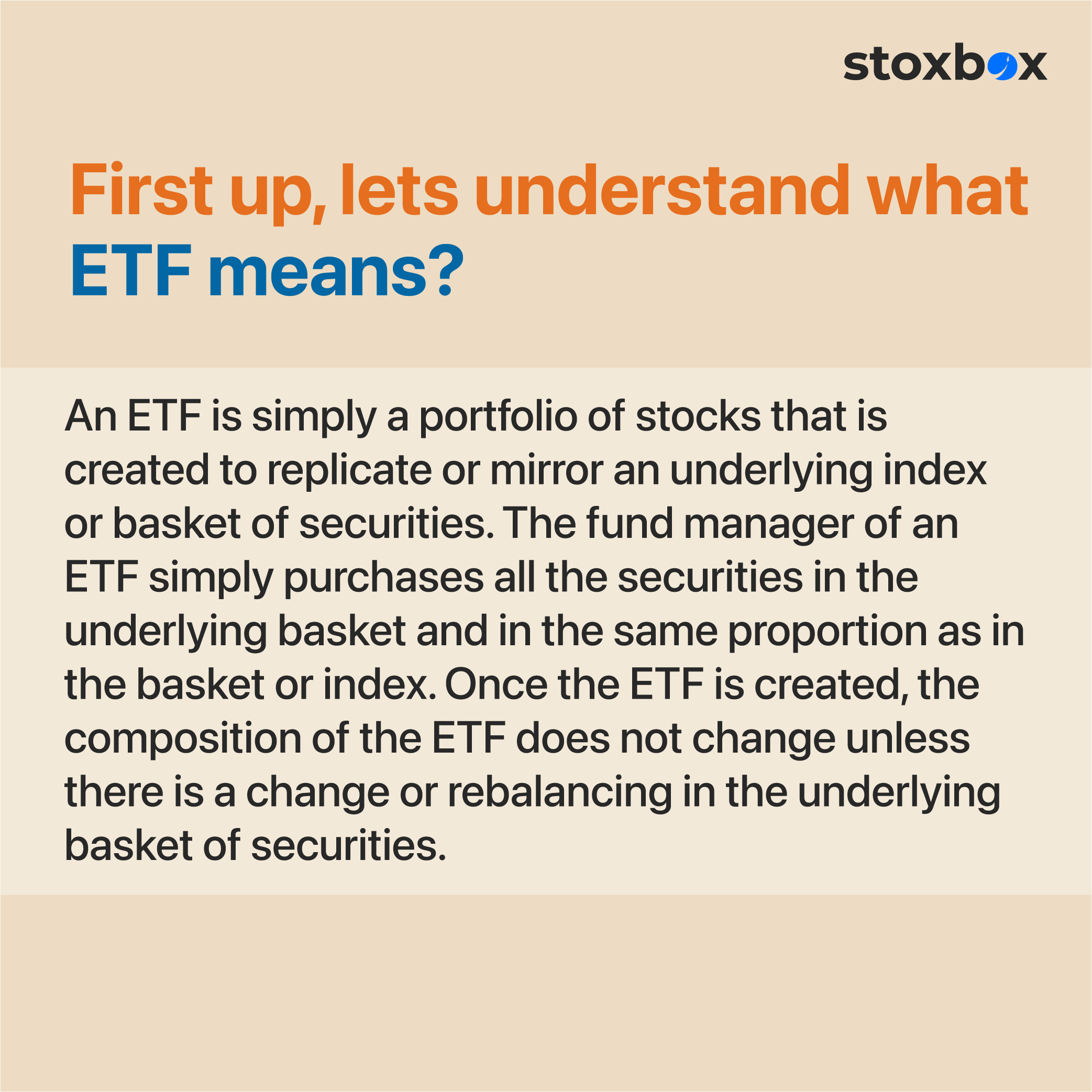
An ETF is simply a portfolio of stocks that is created to replicate or mirror an underlying index or basket of securities. The fund manager of an ETF simply purchases all the securities in the underlying basket and in the same proportion as in the basket or index. Once the ETF is created, the composition of the ETF does not change unless there is a change or rebalancing in the underlying basket of securities.
Let’s understand this better with an example. Assume that you are investing in a Nifty50 ETF. The fund manager of the ETF creates a portfolio that includes all the stock in the Nifty50 index and that too in the same proportion. Once this portfolio is created, the fund manager will buy and sell stocks only if there are changes in the Nifty50 index in terms of addition of a new security, removal of a security, or any change in weights. In the absence of any such changes, the fund manager will simply buy and hold the portfolio. Thus, the main aim of the fund manager is to deliver returns that are in line with the Nifty50 returns. So, if you are an investor who wants to generate market-like returns, then investing in an index ETF could be a great option. However, it is important to note that ETFs are not just limited to the benchmark index. They can be modeled on indices, commodities, sectors or any other assets which can be purchased or sold like the equities, and they can be structured according to the fund house’s preferences. ETFs can even be devised with the intention of tracking the specific investment strategies and styles being followed by fund houses, making it a highly attractive and interesting investment option. In addition to being simple and cost-effective, there is another major benefit of ETFs. They are listed on the stock exchange and can easily be bought and sold like the stocks of companies, as long as you have a demat account.
The other side of the ETF coin
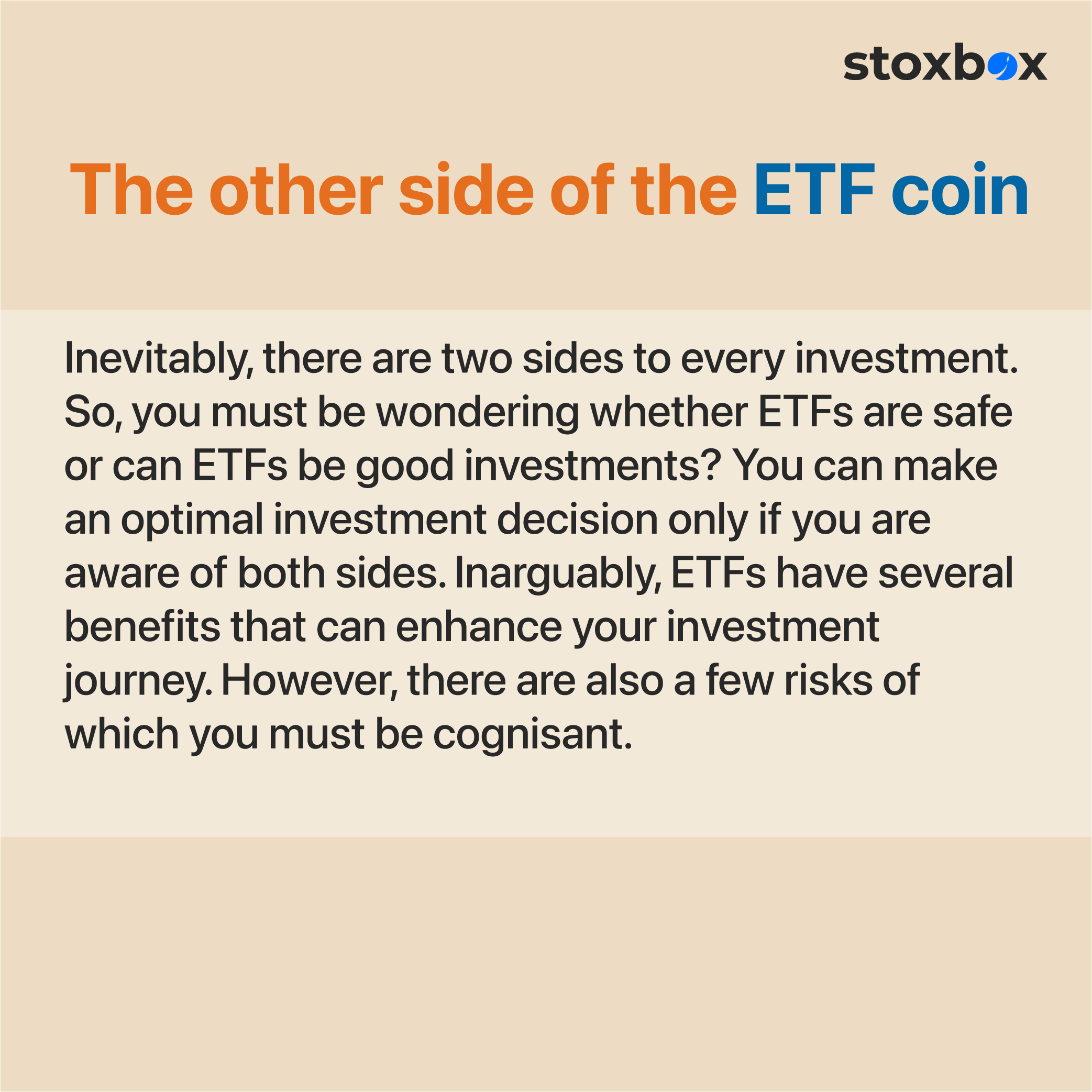
Inevitably, there are two sides to every investment. So, you must be wondering whether ETFs are safe or can ETFs be good investments? You can make an optimal investment decision only if you are aware of both sides. Inarguably, ETFs have several benefits that can enhance your investment journey. However, there are also a few risks of which you must be cognisant. Firstly, they are market-linked products and hence carry the risk of market volatility. Second, not all ETFs are well-traded. This means that when it comes to buying or selling ETFs, you might have to contend with high bid-ask spreads which could potentially widen your risk. And third, ETFs generate ‘market like’ returns and not market returns since they are subject to tracking error.
Overall, as a retail investor, you can definitely choose to invest in ETFs keeping in mind your asset allocation strategy.
You might also Like.
ETF versus Mutual Funds – What is the Difference
ETF versus Mutual Funds – What is the Difference? Every...


